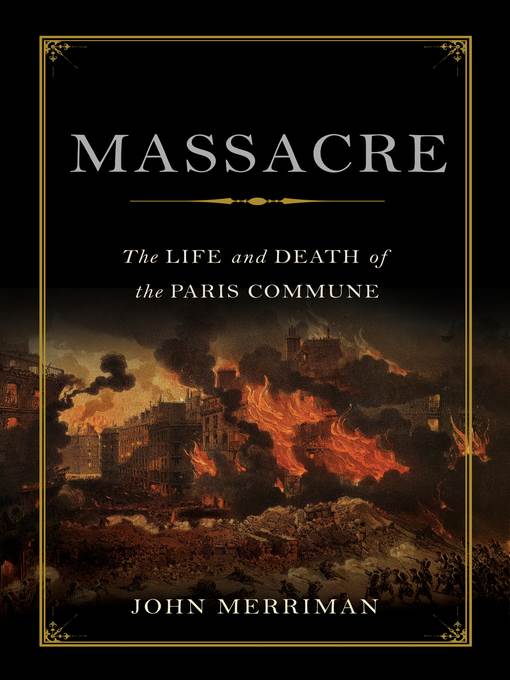
Massacre
The Life and Death of the Paris Commune
- اطلاعات
- نقد و بررسی
- دیدگاه کاربران
نقد و بررسی

December 1, 2014
The Paris Commune is an event that tends to more referenced than understood, but Yale University historian Merriman (The Dynamite Club) changes that with this harrowing account of its 64 days in 1871. He brings the reader up to speed quickly, from Napoleon III's rule as Emperor to the humiliation of the Franco-Prussian War to the birth of the Commune, when a "spontaneous defense of National Guard cannons had quickly evolved into an insurrection and then a revolution." While post-Napoleon III French leader Adolphe Thiers and French elite holed up at Versailles and plotted the downfall of the Commune, the Communards struggled to adjust to the realities of running Paris. Francois Jourde, one of the Commune's National Committee members, hints at how woefully unprepared the Communards were for governing: "We were very embarrassed by our authority." Merriman's writing is straightforward and unsentimental, and he captures just how fast events transpired in Paris for the Commune up to the Bloody Week, when the Army of Versailles overran Paris and executed between 12,000 and 15,000 Communards. In the aftermath, Thiers and his forces labeled the Communards "wild animals" and worse, but Merriman turns his focus on the longevity of the Commune's ideals: "The Communards may have been mortal, but their cause was not."

November 15, 2014
In the early morning of March 18, 1871, residents of Paris took to the streets of the city to begin a 64-day insurrection. Using an array of primary source documents, Merriman (history, Yale Univ; History of Modern Europe) expertly tells the story of violent class warfare through the eyes of participants and observers of the struggle. Following years of political, economic, and social turmoil brought on by war, industrialization, corruption, and poverty, the Paris Commune was the response of an increasingly radicalized urban working class to split away from a conservative national government. During their brief and fierce existence, the Communards attempted to establish a progressive social democracy, issuing prescient decrees that recognized both worker's and women's rights. Although short lived, the commune had significant implications, influencing politicians and theorists alike, Karl Marx included. It symbolized the last of the 19th-century revolutions that tore across Europe and foreshadowed the brutal, systematic repression of the 20th century. VERDICT Recommended for readers of modern political, economic, French, and European history. While not an easy read, it is an important one.--Linda Frederiksen, Washington State Univ. Lib., Vancouver
Copyright 2014 Library Journal, LLC Used with permission.

November 1, 2014
In the spring of 1871, Parisians took to the barricades once again. But this would differ substantially from earlier nineteenth-century popular revolts in Paris. For eight weeks, a collection of alienated workers, tradesmen, utopian socialists, and proto-Marxists controlled the city until they were savagely crushed by regular army forces of the provisional French government centered at Versailles. The so-called Communards were motivated by perceptions of vast social injustices as well as the humiliating defeat of the army during the Franco-Prussian War the previous year. Yale historian Merriman examines the background, activities, and destruction of the Commune in an eloquent, frequently moving and disturbing account. The Communards instituted a variety of progressive social reforms, including advancing the rights of women, expansion of child education, and experiments in local self-government. Merriman is clearly sympathetic to the courage and idealism of the Communards while stressing the brutality of the government's response. Although he ignores the unsavory aspects of the Commune, this is still a fine recounting of an episode that hung over and haunted Europe for subsequent decades.(Reprinted with permission of Booklist, copyright 2014, American Library Association.)




دیدگاه کاربران